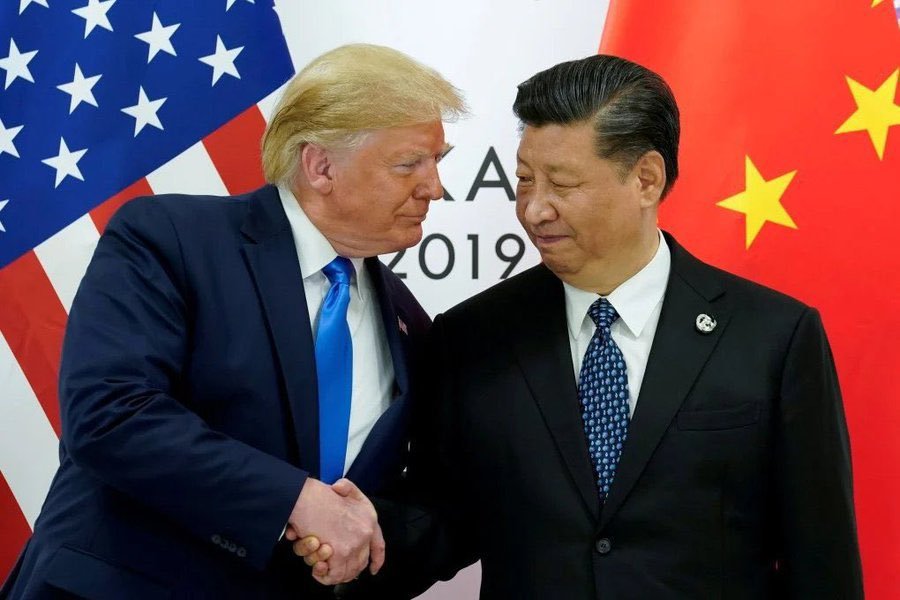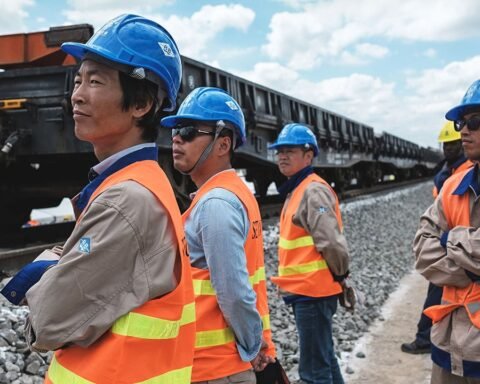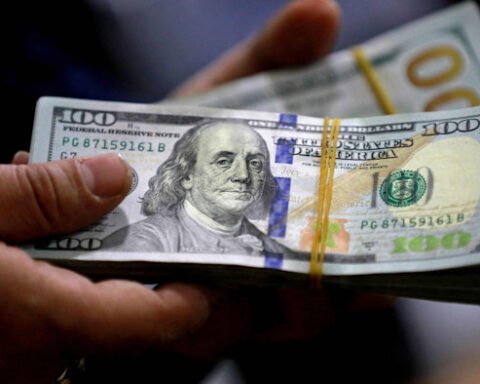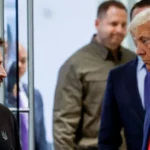Amid heightened trade tensions between Beijing and Washington, China has announced its readiness to settle economic differences through mutual consultation and negotiation
signaling a softer tone in what has become a deeply entrenched standoff between the world’s two largest economies.
The statement came on Thursday from the Chinese Ministry of Commerce, following a sharp escalation in U.S. tariffs on Chinese goods. Speaking to reporters during a routine briefing in Beijing, ministry spokesperson He Yongqian emphasized that any potential negotiations must be based on mutual respect, equality, and constructive dialogue—not on pressure or threats.
“Dialogue is the only correct path,” said He, noting that while China is open to resolving issues diplomatically, it will firmly defend its interests if provoked. The message was clear: Beijing is not walking away from the table, but it won’t engage under duress.
Tensions flared earlier this week after U.S. President Donald Trump announced a 125% tariff on Chinese imports, up from the previous 104%. While Washington claims the move is aimed at correcting trade imbalances and protecting American industry, Beijing sees the aggressive tariffs as punitive and counterproductive. The hikes apply to a wide range of Chinese goods, from electronics to household appliances, affecting over $600 billion in annual trade.
The timing of China’s remarks is not coincidental. Reports indicate that senior Chinese officials are meeting to devise new economic policies that could support local businesses and maintain market stability in the face of rising U.S. protectionism. Proposals include increasing export tax rebates and encouraging more domestic consumption to reduce reliance on foreign markets.
Interestingly, despite the sharp rhetoric and policy maneuvers, China’s stock market remained relatively calm. The Hang Seng and CSI 300 indexes saw modest gains this week, buoyed by investor optimism that the government will unveil supportive measures for key industries, especially technology and manufacturing.
Also Read; Russia Unveils Powerful New
Arsenal for Modern Warfare
Meanwhile, U.S. Treasury Secretary Scott Bessent expressed disappointment over what he termed as China’s “retaliatory stance,” arguing that such moves would hurt China more than the U.S. In an interview on Wednesday, he urged China to reconsider its approach and return to talks, suggesting that a shift in both economies—from U.S. consumption to manufacturing, and from Chinese exports to domestic growth—could create a healthier balance in global trade.
In a gesture aimed at calming tensions, Chinese President Xi Jinping also sent a letter to the U.S.-China Business Council reaffirming China’s interest in continued economic cooperation. He reiterated that “cooperation benefits both, confrontation hurts both,” and stressed the need for peaceful coexistence through steady communication and joint problem-solving.
Though both sides remain firm on their positions, China’s willingness to re-engage in talks may offer a window of opportunity. Whether that window will be used to build a bridge or throw another punch remains to be seen.







